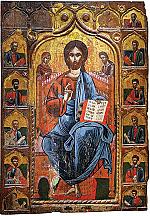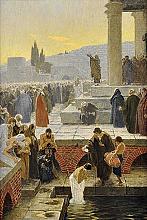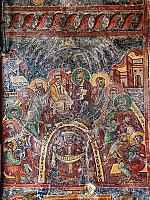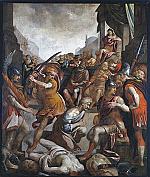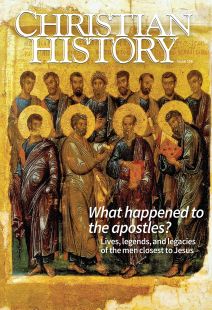Editor's Note: What Happened to the Apostles?

[ABOVE: Kaylena Radcliff—Ashlee Ann Photography (personal photo)]
Do you see biblical narrative as living history?
This isn’t a theological “gotcha” but a genuine question. As I began editing this latest issue of Christian History and reviewing familiar stories of the apostles found in the Gospels and in Acts, I realized something. Often, and unthinkingly, I was reading God’s Word as a decontextualized story. Specifically I was reading about the apostles’ lives as if they weren’t really people, but more like literary supporting characters.
In one sense that’s true. When we read the Bible, we’re seeking to learn more about the God who reveals himself to us through it. But God reveals himself to us in a true story—one in which the Son of God really walked and lived with his family and friends.
MORE TO THE STORY
Insight into the lives of the 12 disciples who became Jesus’s apostles—specifically, Peter, Andrew, James, John, Philip, Bartholomew, Thomas, Matthew, James the Younger, Thaddeus, Simon, and Matthias—gives us another dimension through which to understand our Savior. As you’ll soon read, this was the goal of the early church fathers who served as both historians and theological encouragers when recording more on the apostles’ lives.
In the following pages, Christian History will seek to do the same thing, using the Bible as our primary starting point. Though it’s not covered explicitly in this issue, we operate from the understanding that “all Scripture is God-breathed” (2 Tim. 3:16) and that we can trust everything written in the biblical canon. It’s why we begin with a scholarly look at the Holy Spirit’s transformative role in the 12 disciples’ hearts and how God empowered them to do all that he commanded.
Following our attention to Pentecost, you’ll read what details scholars have gleaned about the apostles outside of Scripture. While reputable ancient sources tell us much of what we can be confident in, the apocryphal writings, as bizarre and as theologically suspect as they often are, corroborate some facts and provide a fuller picture of the apostles’ lives. This includes the places the apostles may have evangelized and the fates they possibly suffered. Though less historically reliable, fantastic legends and miraculous deeds popularized in these apocryphal writings still inspired the imagination and faith of later believers, especially as they were retold in the superheroesque tales of the Middle Ages.
The next pages will also help you sift through the identities of the apostles and of other faithful followers—for example, by the end of this issue, you’ll learn how to distinguish the stories of James the son of Zebedee, James the son of Alphaeus, AND James the brother of Jesus. Finally we’ll get a closer look at other disciples important to the mission of the very early church, including the thirteenth apostle, Paul, the Gospel writers, and the women closest to Jesus.
THEY WHO WALKED WITH GOD
Just as I have at times neglected to contextualize the apostles in history, I also have forgotten these New Testament writers and figures were people—people who did normal things like eating and sleeping, laughing and crying, stumbling and failing. And yet they also walked with Jesus. They learned at his feet, despaired at his death, and exalted in his Resurrection. On these normal people came the power of the Holy Spirit, enabling them to write down what they heard and touched and saw: the living God, the Lamb who takes away the sin of the world and opens eternity before us. It’s a marvelous thought that forever after their encounters with Jesus, these regular men lived—and died—to proclaim him.
And now, reading Scripture with a little more understanding than before, I think marveling is the right response. How marvelous it is to read the conviction, joy, and love in the apostles’ words, to see their transformation as ordinary people who came face to face with our extraordinary God. It’s my prayer that as you read the apostles’ stories in this issue, you may obtain their same confidence and hope: “Though you have not seen him, you love him. Though you do not now see him, you believe in him and rejoice with joy that is inexpressible and filled with glory, obtaining the outcome of your faith, the salvation of your souls” (1 Pet. 1:8–9). CH
By Kaylena Radcliff
[Christian History originally published this article in Christian History Issue #156 in 2025]
Kaylena Radcliff, Managing EditorNext articles
Historical wheat or heretical chaff?
Extrabiblical accounts of the apostles’ lives include the fantastic as well as grains of truth
Bryan M. Litfin



